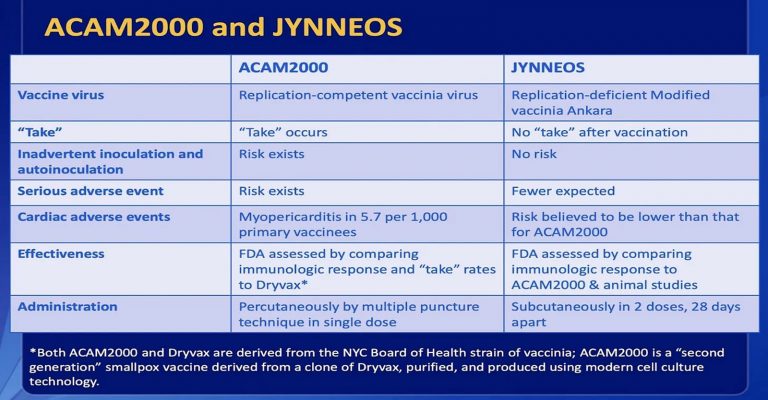Woman Diagnosed With Vaccine-Induced Transverse Myelitis After Pfizer Shots
Danielle Baker, 43, was diagnosed with transverse myelitis after being pressured by her employer to get the two-dose series of the Pfizer COVID-19 vaccine. After researching the batch numbers, Baker learned both doses were associated with high numbers of injuries and deaths.
Ohio native Danielle Baker had a career she loved, working as a certified hospice and palliative care registered nurse. She married the love of her life in the summer of 2020 and was enjoying life with her husband, her son and her stepdaughter.
By 2021, Baker was “the healthiest I had ever been,” she told The Defender.
But Baker’s life as she knew it came crashing to a halt, just days after being coerced in June 2021, by her then-employer, into receiving the two-dose series of the Pfizer-BioNTech COVID-19 vaccine.
Today, Baker, now 43, is permanently disabled, unable to work, faces financial ruin and has lost the ability to perform numerous everyday tasks and basic bodily functions.
In an interview with The Defender, following a separate interview with CHD.TV’s “The People’s Testament,” Baker shared her story.
Baker provided The Defender with extensive documentation and photographic evidence verifying her vaccination status, multiple diagnoses, including transverse myelitis, and current medical conditions.
‘We were so very active, always on the go’
Baker met her husband-to-be in 2019, at the same assisted living facility where she worked. By 2020, they were married and had blended their families.
Her son Ian, now 9, is “a kind-hearted high-functioning ADHD/autistic child.” Baker also welcomed into her life her husband’s daughter, Mady, now 10, “a beautiful girl with ADHD.”
“We were so very active, always on the go,” Baker said. “We felt important to expose our children to experiences in nature and did those adventures all the time, from primitive camping, hiking, hunting, fishing, canoeing — we really did do it all.”
Baker enjoyed her job as a certified hospice and palliative care registered nurse who worked on the frontlines during the first year-plus of the COVID-19 pandemic.
She described the difficulties of watching her patients suffer during COVID-19-related lockdowns and restrictions due to the lack of physical interaction with their families.
“I loved what I did,” said Baker. “I was afforded the honor to be invited into the homes [of my patients] and help those with limited time maintain autonomy and choose how they wanted their end-of-life care to look like.”
Baker had patients with life-limiting illnesses that progressed very rapidly and others that progressed over more time. “The one constant is the relationships I would build at the most vulnerable time,” she said. “I didn’t know it then, but God was teaching me the importance of the right to choose and maintaining autonomy.”
Baker always reviewed the “risks and benefits” when discussing medical treatment with her patients, and always allowed them to choose what they felt was in their best interests.
“My function wasn’t to have an opinion,” she said. “It was to present information and allow a path to be taken which was in line with that particular patient’s set of values. I had no trouble fighting for my patients and their medical rights.”
During COVID-19, her job became more difficult. “I watched too many lives suffer due to lack of family interaction because of the lockdowns, many times hearing from residents that ‘this fate is worse than death,’” said Baker.
‘Worst decision I ever made’
Baker came down with what she described as a mild case of COVID-19 in 2020. “The loss of taste and smell, along with fatigue, were the most bothersome of everything,” she said.
In the months that followed, she worked as usual but experienced “some brain fog” and “trouble thinking,” in addition to just feeling “off.” Despite these lingering symptoms, she continued to work.
Vaccine rollouts began in 2020-21 at her workplace. “The first to be vaccinated were healthcare workers and the elderly in facilities,” she said.
However, Baker described feeling “trepidation and hesitation, because I knew how the standards are for medication and getting it ‘passed’” through the regulatory agencies:
“I didn’t trust how fast it was zoomed through and that if you took the vaccine, you really had no idea what was going to happen. Add to it the [mRNA] technology being used, it was a perfect storm.
“In the cancer arena, gene therapy was getting traction … That in itself is worrisome to me. Taking a virus we know nothing about and then utilizing technology that allows it to penetrate down to the DNA? That was a big ‘no, I’m not getting it’ on my part.”
Baker said she’s always supported medical choice. “I wasn’t pro- or anti-vax, I was pro ‘let me have the information,’” she said. “But I had no plans to take it [the COVID-19 vaccine].”
During her CHD.TV interview, Baker said many of her co-workers felt similarly. “To know that they have this experimental — I hate even calling it a vaccine — experiment that they pushed through so fast and started jabbing people with it scared me to death,” she said, “And it scared most of our co-workers. And a lot of us didn’t want to take it.”
Baker was also confident she was protected because she already had the virus. “I developed COVID after a whole year of working in that environment without proper PPE, and I did just fine,” she said. “I came through it okay, and I know that gave me a natural immunity and I was okay with that.”
Baker said she was troubled that many of her patients disappeared after getting the vaccine:
“I remember when they started to do vaccinations in the nursing homes and assisted living [facilities], and people would load on a bus and go and they would have mass vaccinations.
“Thinking back, there would be empty rooms. These healthy people went for these vaccinations, and in a week or two, I saw their rooms were empty. I would ask the staff what happened, and a lot of times the answer was they had a stroke and died, or they had heart issues and had to move into a nursing home … I have no doubt that the shot is what escalated a lot of decline, even in our hospice patients.”
In spring 2021, her employer started sending emails to “encourage” staff to get the vaccine, pushing “the ‘safe and effective’ narrative” and offering incentives.
She said:
“An email came out stating we had until July to get the poison. If we didn’t take it and happened to acquire COVID, they would no longer pay for your days off. In addition, they put out a ‘safety net’ of sorts. The email stated that if you got the jab before July, then if you got sick because of the injection, you will be paid while off.”
Baker told CHD.TV her employer also offered other incentives, including cash bonuses of $100 and drawings for larger cash amounts, up to $5,000.
She also described “segregation” in the workplace, as unvaccinated staff members were required to be masked at all times. Employees were not informed about any possible exemptions.
“Our whole company knew the mandates were going to take effect in August [2021], so I took it with the belief in the ‘safety net,’” explained Baker.
She received the two-dose primary series of the Pfizer-BioNTech COVID-19 vaccine on June 4, 2021, and June 26, 2021.
“I needed my career, I needed my income, I needed our insurance because I was the carrier,” Baker told CHD.TV. “Worst decision I ever made.”
Finally, a vaccine injury diagnosis
Baker’s adverse events started 18 days after she received her first dose. “I went to the ER feeling like I had a kidney stone, because the pain was that bad,” said Baker. “I was released with a muscle strain diagnosis.”
At first, she didn’t connect her symptoms with the injection. But things got much worse after her second shot, she said.
“On the day of my second vaccination, I had a fall,” Baker said. “I was in excruciating pain from up the neck to down the arm, with shooting numbness and tingling.”
She thought she had broken her collarbone, but when she went back to the ER, doctors dismissed her.
“They had me in and out of there in a half hour, they took an X-ray and told us that everything was fine and sent us on our way,” she said.
The next day, she was back in the ER with even worse symptoms. Doctors did a CT scan on her neck and told her she had a separated AC joint.
But Baker’s symptoms worsened between June 28 and July 17, 2021. She felt “uncomfortable” and “didn’t seem to be healing right,” she said. By July 17, she was experiencing “horrible back pain again, had lost her ability to walk with any coordination, and felt “foggy and tired.” It was “the worst back pain I ever had,” she said.
“Over the next four days, I went from being normal to not being able to really even eat,” Baker told CHD.TV.
Then, after several visits to various doctors and a spate of tests, including spinal taps, an ER doctor diagnosed Baker with transverse myelitis, a neurological disorder involving inflammation of the spinal cord.
Baker said her “core group” of doctors now includes a primary care physician, a neurologist, an alternative pain practitioner and a consulting allopathic physician.
“All of those doctors are on the same page about my condition and directly link it to the shot” as “other causes have been ruled out,” said Baker.
Baker reported her vaccine-related adverse events to the Vaccine Adverse Event Reporting System (VAERS) and to MedWatch on Aug. 4, 2021.
“My VAERS report disappeared and my MedWatch report was never acknowledged,” she said. “Nobody else filed one on my behalf that I am aware of.”
Read the full article on The Defender and watch on CHD.TV








